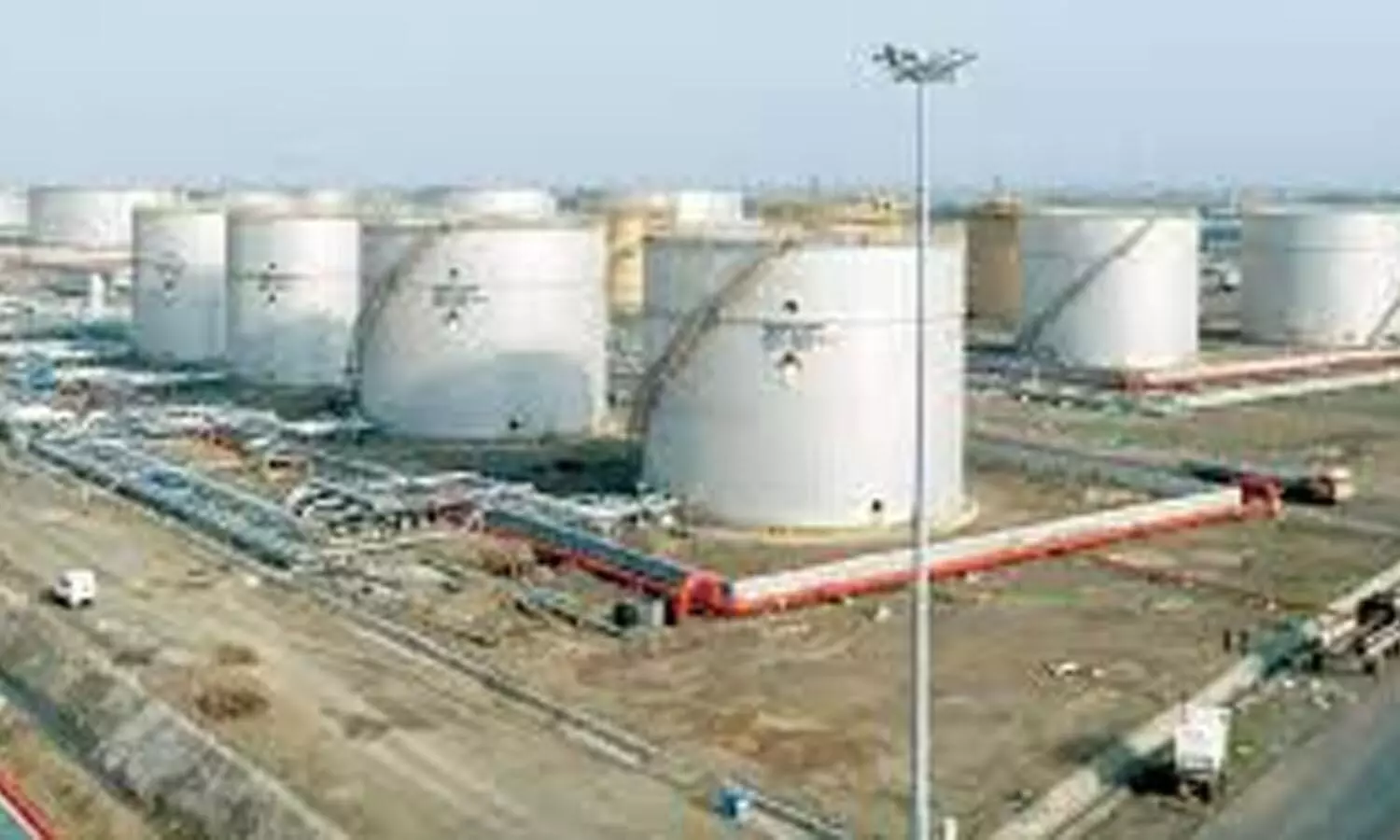Modi's oil tax cut: Windfall for crony capitalists, raw deal for ordinary citizens
The Centre steeply slashing the Windfall Tax has revived the criticism of crony capitalism as Mukesh Abani's Reliance refineries and the likes stand to make significant gains from it

HYDERABAD: The Narendra Modi Government at the Centre steeply slashing the Windfall Tax on domestic crude oil export from the existing Rs 4,900 per tonne to Rs 1,700 per tonne has revived the criticism of crony capitalism as Mukesh Abani's Reliance refineries and the likes stand to make significant gains from it. The NDA government's move instantly drew flak for ignoring the common man once again only to benefit the big private players in the Indian oil sector.
The states, ruled by the non-BJP parties, have been cribbing about the Centre eating into their legitimate share under the guise of additional excise duty and cess and then asking them to give up their value-added tax (VAT) on petroleum products.
The states have been bitterly opposed to the Centre's tax-sharing mechanism as they feel that they are not only being robbed of their due share in taxes but also the scope of taxation is narrowed down due to the tweaking of the system to bring in additional excise duty and cess.
The states are of the view that in the current taxation framework for petrol and diesel sales, there is nothing really left for the states to provide any relief to the end consumer. Telangana is among the states that have been vociferously demanding the removal of the additional taxes and the cess, which are being implemented by the NDA regime.
The NDA government has been constantly under criticism over the years for promptly burdening the common man in the event of a petrol price rise but not being diligent in passing on the same benefit when the oil prices plummeted. The Centre, through the public sector oil companies, is accused of gobbling up maximum benefit from the price fluctuations while only offering an occasional crumbs of marginal relief to the consumers.
The steep cut in the windfall tax now is largely being seen as a comforting caress from the Centre to help the private refiners benefit immensely from it. The two Jamnagar refineries of Mukesh Ambani's Reliance Industries Limited, one of which was completely export-oriented, will be the most significant of the beneficiaries from this sudden benevolence 'windfall' from the Centre.
Private refineries like the ones owned by Reliance are also accused of minting petro dollars massively by thriving on the cheap crude oil that India has been importing from Russia in the aftermath of the Ukraine war. It is anybody's guess as to how these companies would be allowed to get hold of the heavily discounted Russian crude at the expense of the domestic needs and then sell it in European markets with unimaginably high profit margins.
What is windfall tax and who will benefit from the latest cut?
A windfall tax is a higher tax rate levied by governments against certain industries when economic conditions allow those industries to experience above-average profits. When any industry, oil and gas in this context, benefits from an event or an extraordinary external situation (the Russia-Ukraine conflict) that they were not responsible for and make sudden profits, these profits are taxed separately, over and above the normal taxes that these companies pay to the governments.
The Narendra Modi Government's latest move slashing the windfall tax on domestic crude oil export revived the debate as to who would really benefit from the measure – the ordinary Indians or a handful of refineries, owned both by the State and a few big private players?
On July 1 this year, the Centre imposed the windfall tax on crude oil producers and levies on exports of petrol, diesel and aviation turbine fuel (ATF) after private refiners went after overseas markets to gain from robust refining margins, instead of selling at lower-than-market rates in the country. The move came against the backdrop of the Russia-Ukraine war because of which the fuel prices have soared to astronomical levels, resulting in more-than-normal profits to the country's oil companies.
How Reliance makes gold out of cheap Russian crude oil
Public sector oil companies, namely Indian Oil, HPCL and BPCL, are the ones that cater to 90 percent of India's perennial fuel (mainly petrol and diesel) needs. But these public sector oil companies benefit only marginally when it comes to the heavily discounted crude oil that India imports from Russia. In what could be a big shocker to the conventionally-inclined, two big private players – Reliance Industries Limited and Nayara Energy Limited – happen to be biggest importers of the Russian crude, buying about 75 percent of it.
Now, brace for yet another shocker: These two private entities are refining the heavily discounted Russian crude oil in India and then exporting it to the high-demand European markets at exorbitant rates. Effectively, both Reliance and Nayara are accused of thriving on a two-pronged profit chain, first at source and then in the lucrative western markets. And the most obvious casualty in the bargain is the Indian market and the average domestic user. The Russian crude oil, for which the Narendra Modi dispensation has even braved international sanctions, is clearly not meant for domestic use by the ordinary consumer.
The Centre is accused of playing the most hospitable facilitator for these private entities to acquire the Russian crude. As per some statistics, until the start of the Ukraine conflict, Reliance's share of crude imports from Russia accounted only for five percent but in no time it shot up manifold, signifying the amount of importance attached to Russian oil by the Indian private players.



